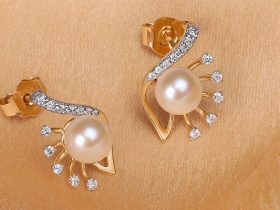The red-orange flakes you see on rusted iron and its alloys are referred to as iron oxides. When the metal surface is exposed to water, air, salt water, and other harsh substances, the iron reacts and begins to corrode, leading to an unpleasant appearance of the metal. If used in structures, rusted metal can affect the integrity of the building.
If you don’t want your metal to go to waste, here are some tips on how you can prevent it from rusting:
- Transport metal in proper containers
After you buy steel in Salt Lake City, for example, and your site is more than a few miles away, make sure your truck is clean and free from moisture. If you’re transporting metal in a pick-up, secure a tarpaulin over the load, even if it doesn’t look like it’s going to rain.
- Store metal properly
When ferrous metal is exposed to water, the iron particles from the metal and the oxygen from the water will merge into iron oxide. Hence, metals that are exposed to water or humid environments are prone to rust.
If you won’t use your metal immediately, store them in a clean, dry place for the meantime. If you’re going to store metal in the garage or basement, put a dehumidifier in the room to decrease the amount of moisture in the air.
- Keep metals clean
Mud and grime can contain water, so don’t let them sit for too long on metal surfaces. Clean dirt and mud away from metals with a non-abrasive object, such as a rag or sponge.
- Scrape rust immediately
Once you see rust forming on your metal, scrape it off with a spatula and clean the area with warm water and soap. Rust can spread rapidly, so to avoid further oxidation, apply a protective coating to the surface as needed.
For contractors or hobbyists that store metal for long periods, b sure to check your stocks every once in a while to remove rust before it spreads.
- Use a protective coating
To protect iron-containing metals from corrosion, you can use anti-rust products that are commercially available in sprays, solutions, or wipes, among many other forms. The ingredients in these products prevent metal products from oxidizing in the presence of water or air, hence, it’s essential for metal objects that are used regularly or stored in the outdoors, such as vehicles, tools, and construction parts.
- Avoid scratching the metal
Metals that have scratches or cracks on the surface can give access to more water, making it prone to corrosion.
Protect your metals from getting scratched by storing them properly and training staff to handle them correctly. It’s also a good idea to opt for cold-rolled steel for your project since cold-rolled steel has a smoother surface than hot-rolled steel, and is thus more corrosion-resistant
Metal is one of the most important materials for almost all construction projects, so you should prevent corrosion at all costs. The next time you buy steel, practice these anti-corrosion tips that will not only help save you money but also protect the quality of your project.










